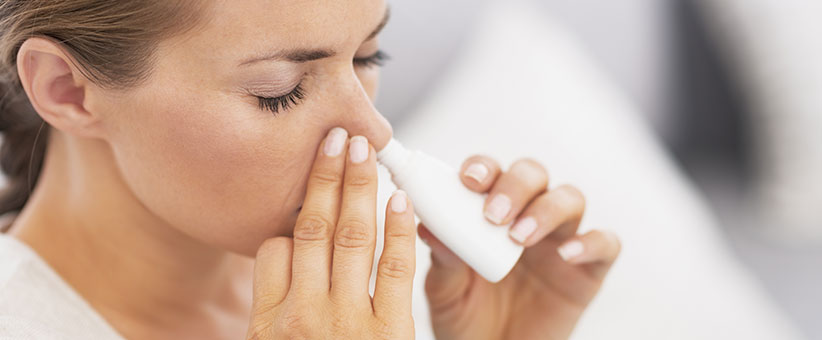Allergic reactions affecting the face often lead to swollen lips, raised welts, and watery eyes. Like other allergic reactions, these reactions happen when you come into contact with the allergen. You might have eaten, inhaled, or rubbed the allergen onto your skin. The symptoms develop in seconds or minutes or gradually over hours.
How long does an allergic reaction last on your face? It’s hard to tell as the symptoms vary depending on the allergen.
If you are having an allergic reaction on your face, you should move with haste and visit an allergy specialist doctor to help you determine the cause of the reaction and give you the appropriate medication.
Causes of allergic reactions on the face
Direct contact with the allergen
When your skin reacts after direct contact with a substance, you are said to be suffering from contact dermatitis, and it’s common on the hands and face. You will have this allergic reaction when you come into contact with: soaps, detergents, and toiletries, metal jewelry, latex, solvents, dust, soil, chemicals, plants, and other items.
The symptoms include: redness, hives, inflamed skin, itchiness, and small blisters. The symptoms often appear within 48 hours, but it’s not uncommon for them to appear immediately.
Food
Face reactions due to food are common in young children, but this isn’t to say they don’t happen in adults. The food reactions cause facial symptoms such as swollen lips and eyes, red, itchy hives, swollen tongue, breathing difficulties, and pale or blue skin. In severe cases, the food can cause anaphylaxis.
Any food can cause allergies, including fruits and vegetables, but the most common foods known to cause allergies are: nuts, milk, eggs, and shellfish.
Drugs
You can take mediation either through injection or swallowing, and your face reacts to it. The symptoms are similar to those you find in food allergies and can also result in anaphylaxis.
Common drugs known to cause allergies are: penicillin and related antibiotics, anticonvulsants, chemotherapy drugs, and non-steroidal anti-inflammatory drugs such as ibuprofen and aspirin.
Hay fever
Popularly known as seasonal allergic rhinitis, hay fever is a reaction to grass, tree, or weed pollen that affects people mostly in the months of spring and summer when the pollen count is high. It’s triggered when you inhale pollen or touch your face or eyes.
Depending on the amount of allergen you have come across, hay fever can have a significant effect on your face, with symptoms that include: watering eyes, itchy, red eyes, itchy or irritated nose, pain or pressure around the nose, temples, and forehead.
You are also more likely to cough, sneeze, feel tired, have a runny or blocked nose and headache.
Atopic eczema
Also known as atopic dermatitis, atopic eczema is characterized by red, dry, itchy skin. The itch can affect any part of your body, including the face.
Although the condition is common in children, it can also happen in adults of any age. When not properly managed, it’s prone to flare-ups where the flare-ups are triggered by dust mites, food allergies, detergents, certain fabrics, weather, and changes in hormone levels.
Can you prevent reactions on your face?
Yes, you can prevent them from resulting, and how you do it depends on the type of allergy you are having. Some ways to prevent the situation include:
Food allergies: You can protect yourself by reading the labels before eating any food. You also should be ultra-cautious when eating in restaurants, delis, and street stalls, so you don’t eat food that you are allergic to.
Hay fever: You should protect yourself by staying indoors and avoiding the grassy areas when the pollen count is high. If you lead a busy life and can’t stay indoors, take antihistamines and wear wraparound sunglasses to limit the amount of pollen reaching your eyes.
How to treat reactions to the face
How you treat the condition depends on the type of allergy you are suffering from. When you visit an allergist Germantown MD, he can recommend different medications such as antihistamines, corticosteroids, moisturizers, and even immunotherapy.
The key to getting the best treatment is ensuring you are getting treated by an experienced professional. You don’t want someone to botch you up, do you?


